Culture isn’t something you write down once in a handbook. It’s something your team lives every day.
Whether you lead a small team or an entire organization, strong workplace culture doesn’t just happen—it’s built intentionally. Here are 10 practical tips to help you create a workplace where people feel motivated, aligned, and ready to do their best work.
Lead with Clarity, Not Assumptions
Unclear expectations are the fastest way to stall a team.
When leaders explain the “why” behind their decisions, it builds trust and alignment. People don’t just want instructions—they want context. Clarity sets the tone for accountability and collaboration.
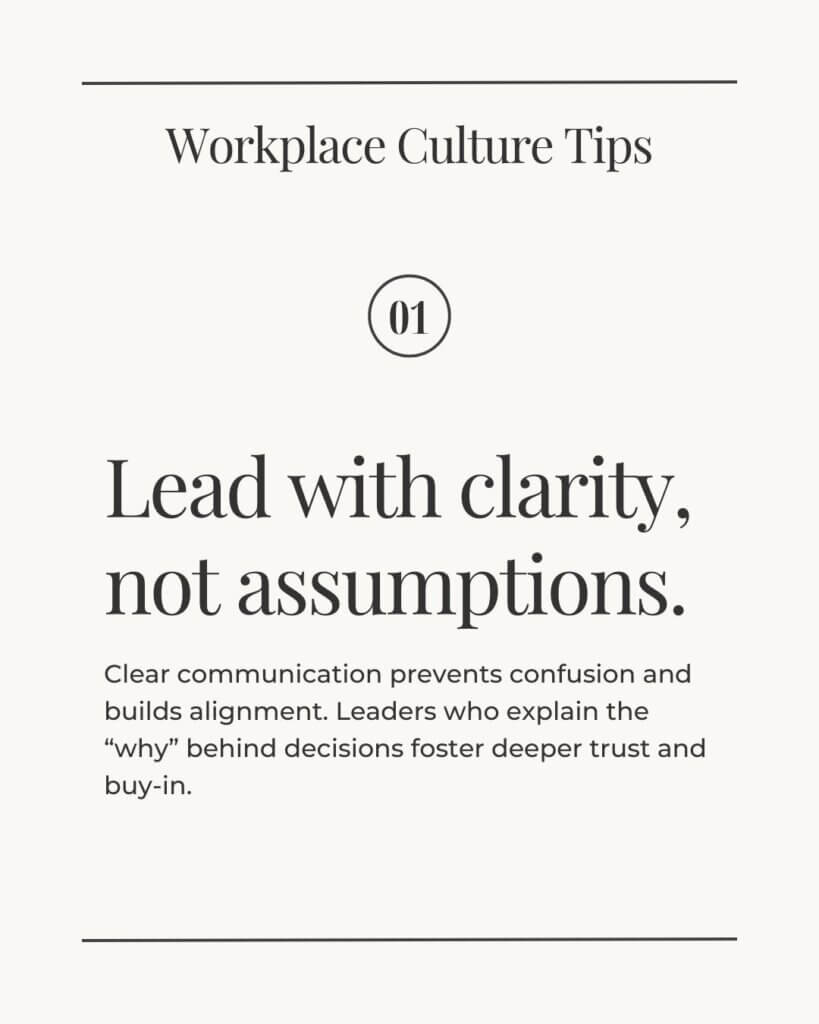
Recognize Wins, Big and Small
Recognition doesn’t need to be formal or flashy.
A quick thank-you, a Slack shoutout, or a moment in a team conference goes a long way. When people feel appreciated, they stay engaged—and they’re more likely to go the extra mile.
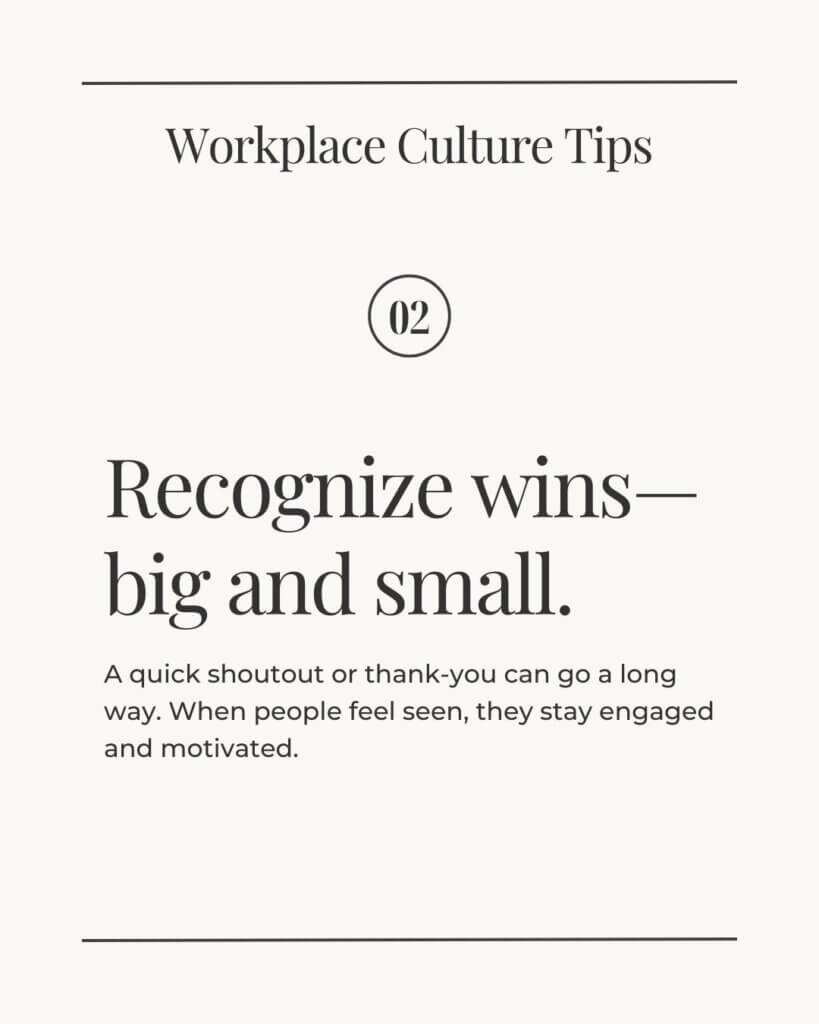
Your Culture Is Shaped by What You Tolerate
Ignoring toxic behavior sends the message that it’s acceptable.
If someone’s behavior clashes with your values, address it. Leaders who consistently reinforce standards—both through words and consequences—build safer, healthier workplaces.
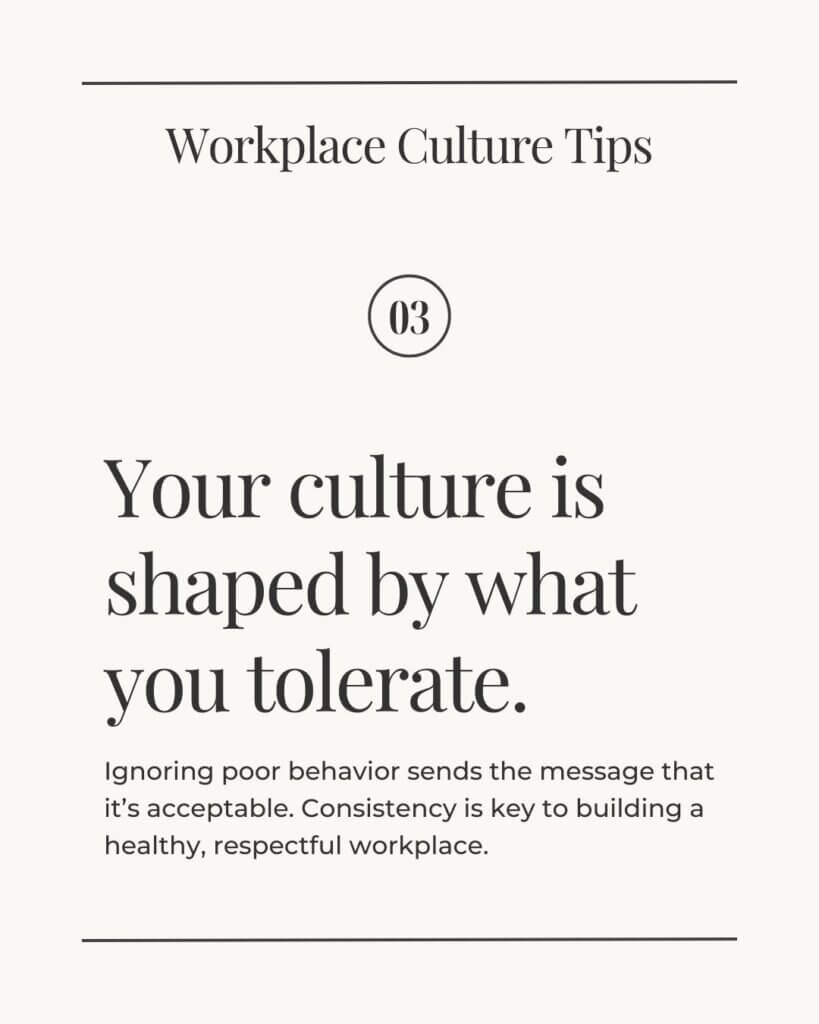
Invite Feedback and Act on It
Asking for input is good. Acting on it is better.
When employees see that their ideas lead to change, it builds trust and psychological safety. Consider feedback loops part of your leadership strategy, not just a one-time survey.
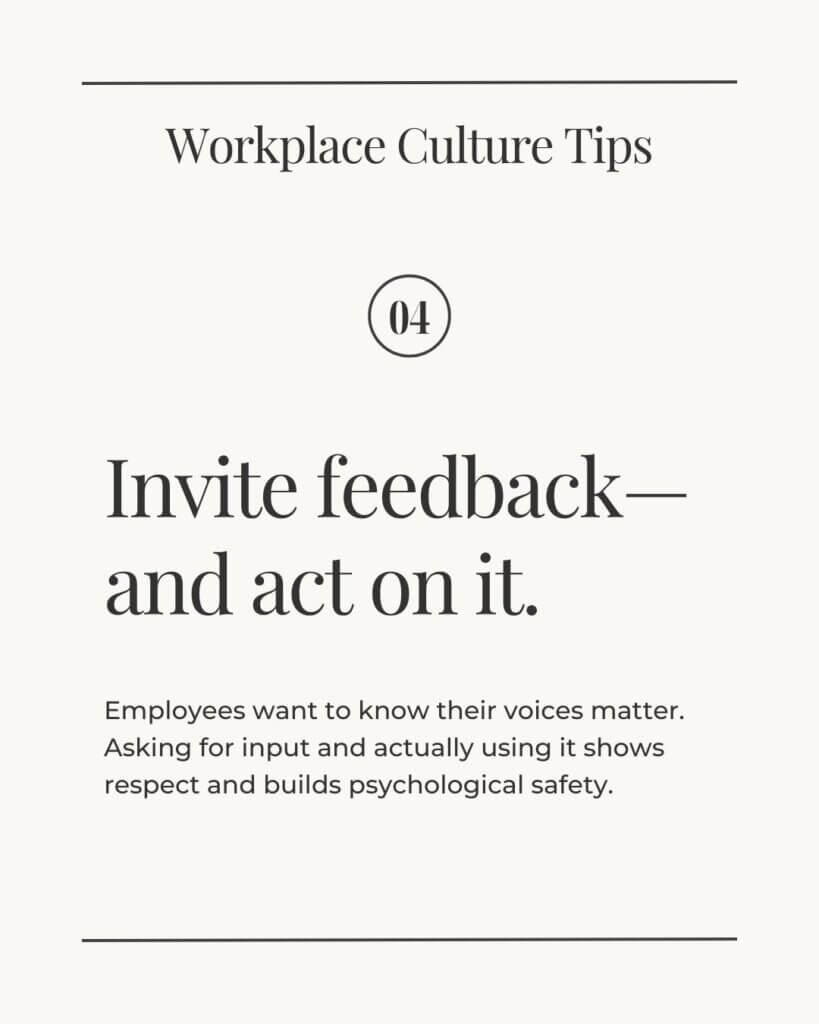
Make Values Visible
Your values should guide everyday decisions—not just decorate a poster.
Embed them into conferences, performance reviews, and project planning. When values are practiced consistently, they shape how your team works and how your brand is perceived.
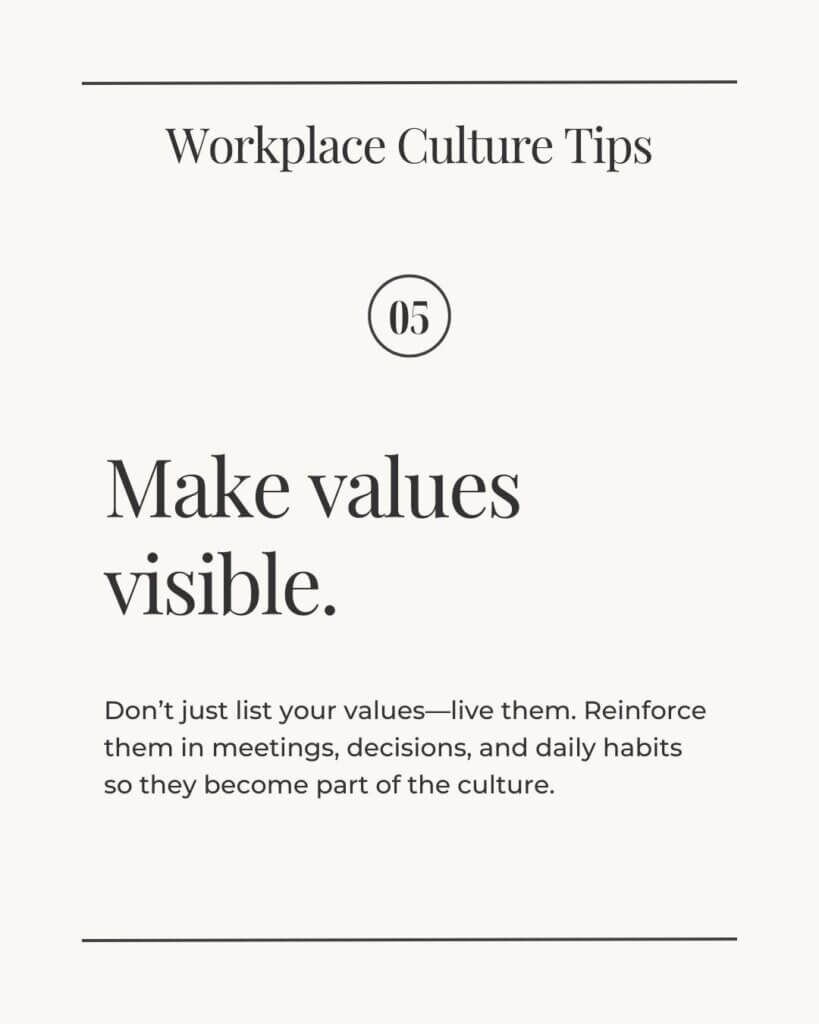
Onboarding Sets the Tone
A new hire’s first few weeks shape their long-term engagement.
Thoughtful onboarding—structured training, early wins, and cultural connection—builds momentum and reduces turnover. Make people feel like they belong from day one.
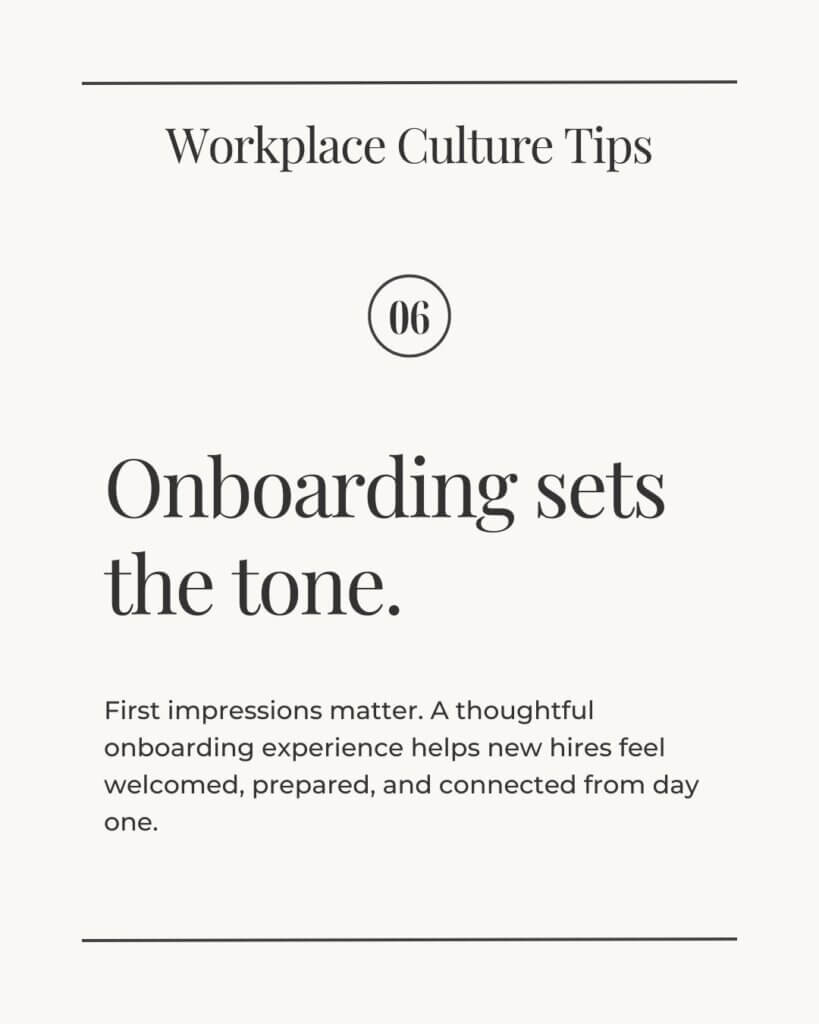
Don’t Just Hire for Skills. Hire for Attitude
A technically brilliant team without shared values won’t thrive.
Look for curiosity, adaptability, and a team-first mindset during the hiring process. Skills can be taught. Cultural alignment creates staying power.
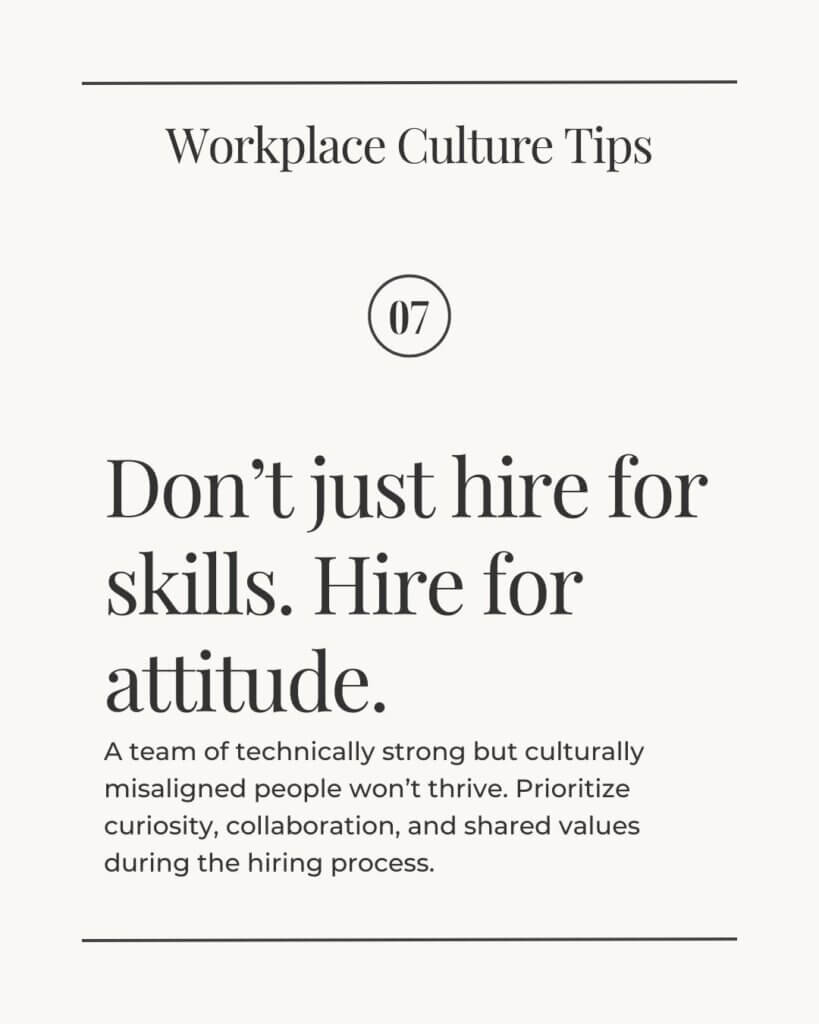
Flexibility Is a Leadership Strength
Rigid systems fail fast in a changing world.
Whether it’s hybrid schedules, adjusted timelines, or evolving roles, flexibility shows trust in your team. Adaptable leaders model resilience—and boost it across the organization.
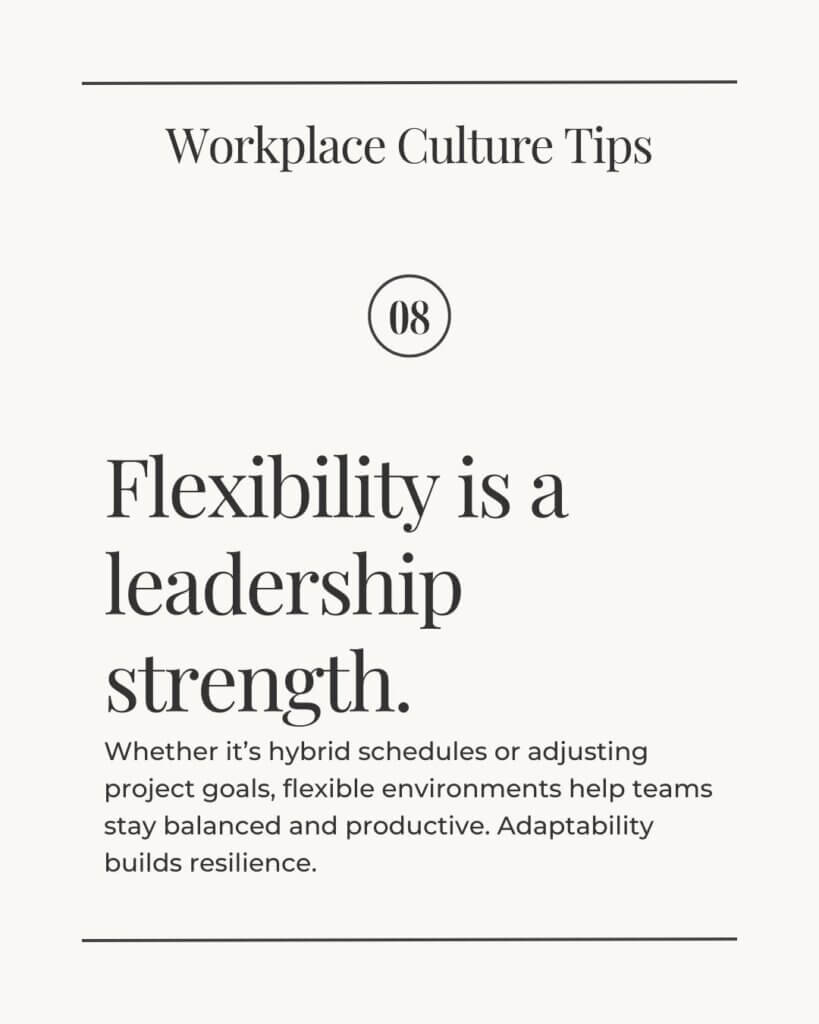
Train Your Managers
Most culture challenges start at the manager level.
Equip managers with the tools to coach, communicate, and lead effectively. Great managers don’t just keep teams on track—they shape how culture is experienced every day.
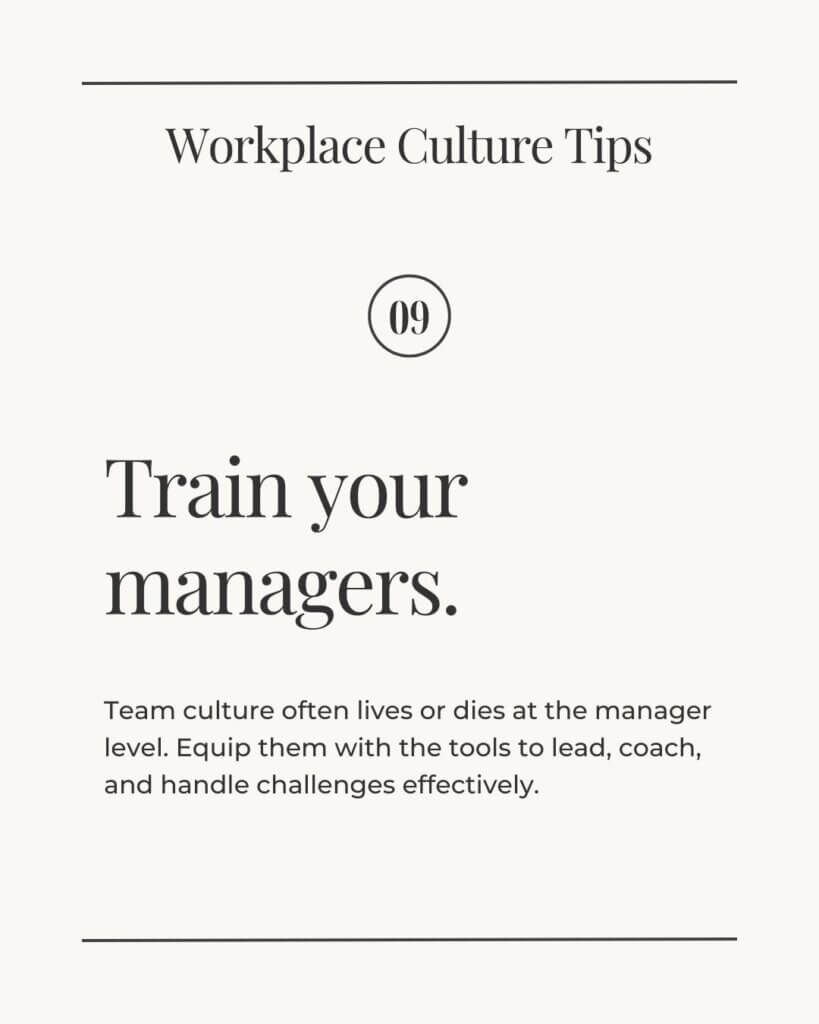
Celebrate Progress, Not Just Perfection
Waiting for perfect results slows momentum.
Celebrate small wins and learning moments. This reinforces a growth mindset and keeps people motivated—even when the path is messy.
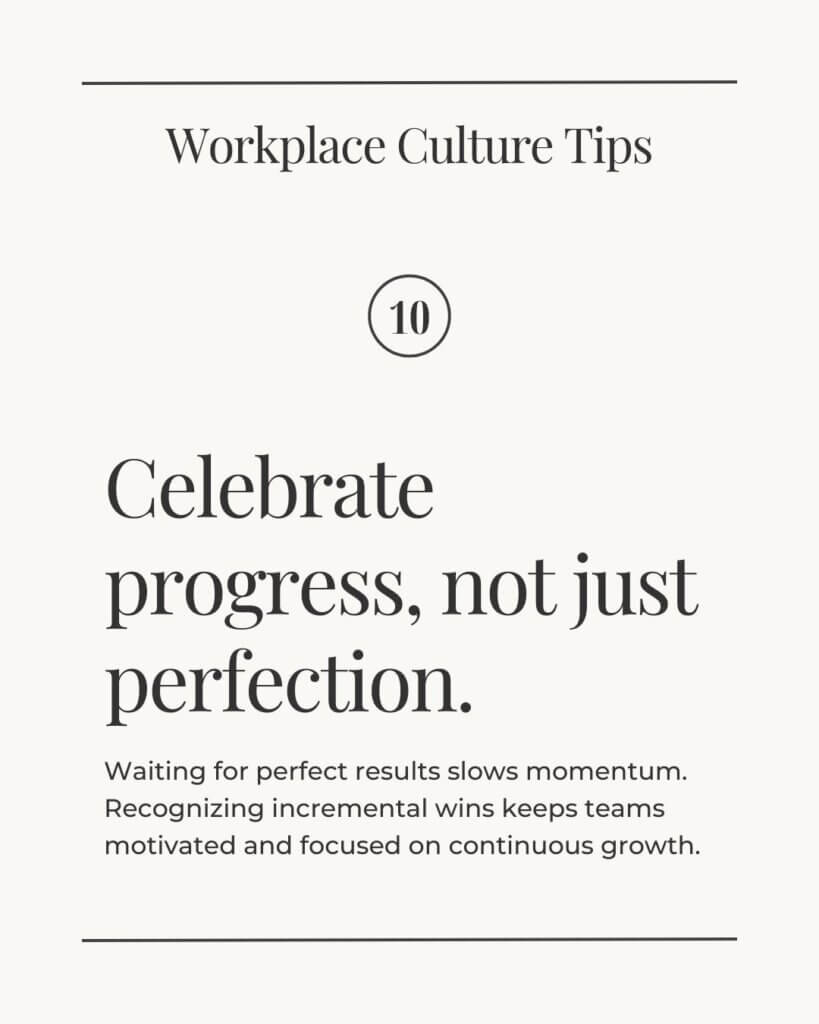
Key Takeaways for Leaders
- Lead with intention. Clear communication builds trust and prevents misalignment.
- Culture is reinforced every day. Recognize effort, act on feedback, and uphold your values.
- People come first. Hire for attitude, invest in your managers, and support growth at every level.
About Jeff Spaletta
Jeff Spaletta is a Phoenix-based Leadership Coach and Business Consultant specializing in strategic planning, team building, and leadership development. With deep expertise in human capital and project management, Jeff helps organizations improve performance by aligning people, process, and purpose.
His coaching and consulting work spans startups, nonprofits, and established companies—always focused on practical, people-first leadership. Whether you’re growing a new venture or scaling an enterprise, Jeff brings actionable strategies that support long-term success.
Explore more insights on innovation, business development, and building resilient culture across industries.
Leave a Reply